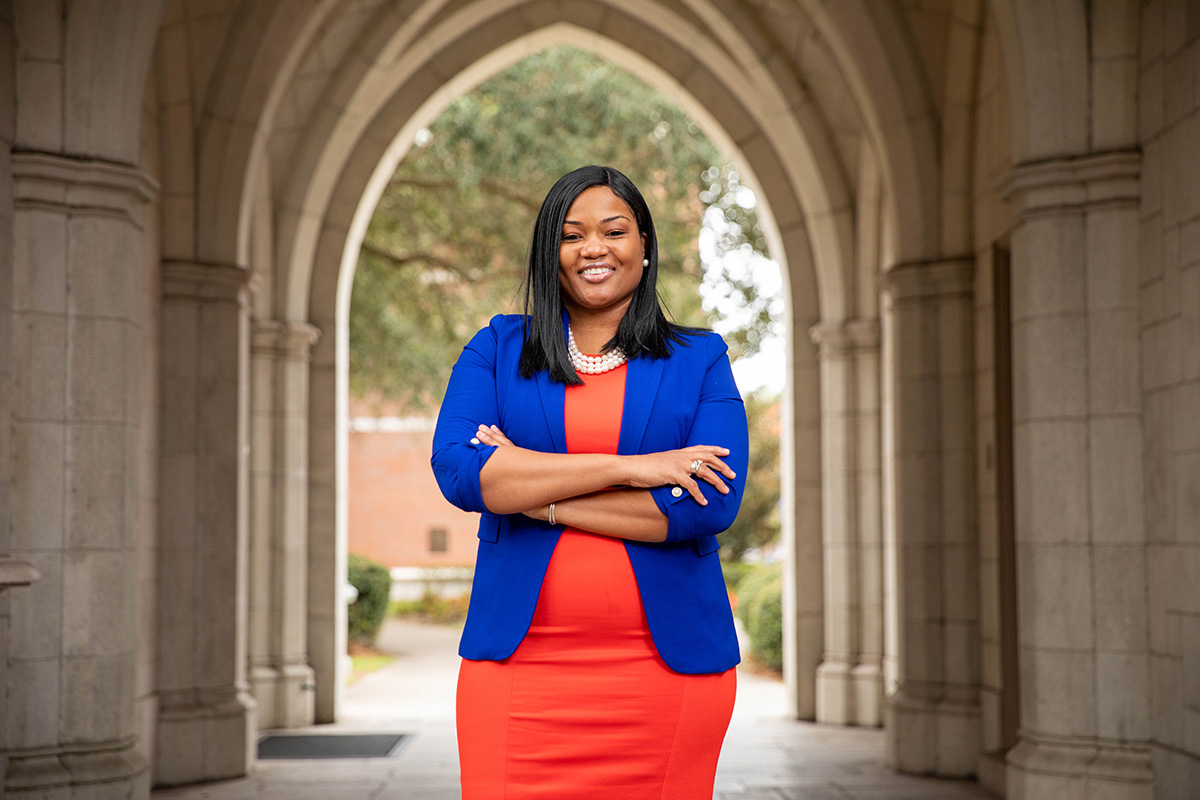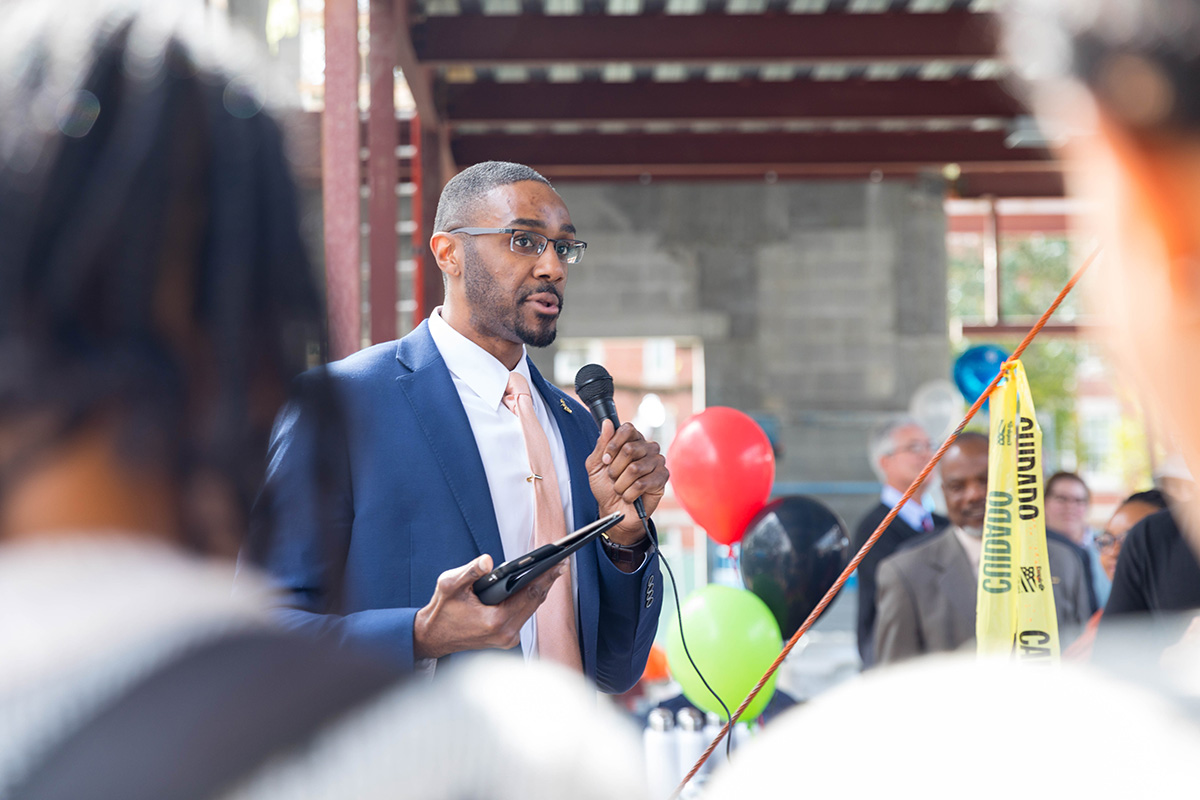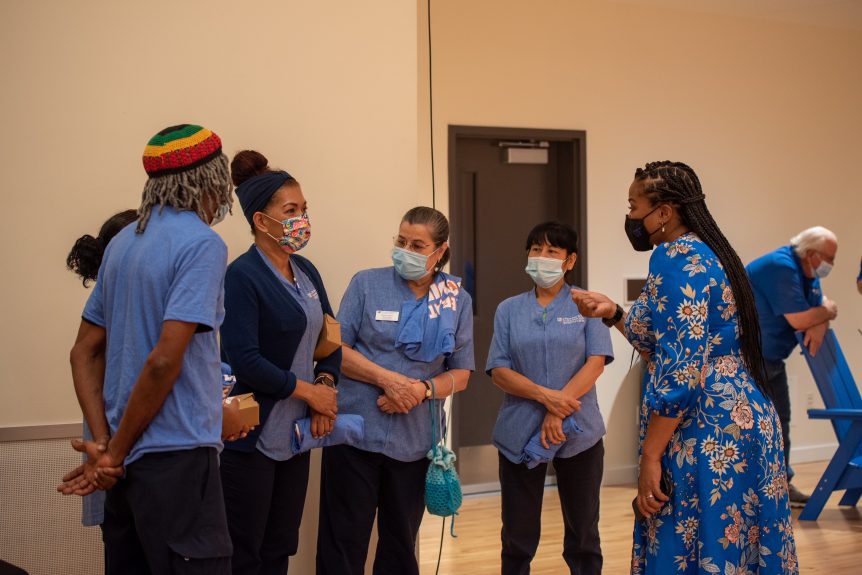The American College Personnel Association ranked the Division of Student Affairs at the University of Florida among the field’s 30 most promising workplaces in the U.S. in 2021. The ranking is based on a study of the professional development opportunities, workplace culture and staff diversity at 1,200 institutions.
Dr. D’Andra Mull, vice president for Student Affairs at UF, said the award signals to the professional community the division’s priorities for growth and establishes the university as a benchmark for student affairs divisions across the U.S. UF was first recognized in 2020.

Dr. D’Andra Mull, vice president for Student Affairs, said the ranking places UF Student Affairs in the field’s top 1%. This year marks the second time that UF was recognized. Division of Student Affairs photo by Matthew August
“We are about moving beyond the transactional experiences to reach the transformational,” she said. “This recognition is something we are very proud of, especially after the hard work of our team during the pandemic. The commitment of Student Affairs staff is what we needed to serve students during this time. It’s certainly a privilege to work alongside such dedication.”
The study, commissioned by the magazine Diverse: Issues in Higher Education, evaluates the extent that the administrative structures, work environments and staffing practices of American College Personnel Association member institutions reflect principles of diversity and inclusion. Ranked institutions demonstrated evidence-based practices to promote student success, engagement with national organizations, investment in the professional growth of staff and diverse leadership.
Student Affairs at UF comprises 25 departments to support students’ holistic well-being, including the Department of Multicultural and Diversity Affairs, the Department of Recreational Sports, the Counseling and Wellness Center and the Career Connections Center.
William Atkins, interim assistant vice president for Student Affairs, said staff development is an essential component of meeting students’ needs. UF Student Affairs employs more than 2,300 part-time and full-time staff members with skillsets including health promotion, special education, counseling and more.

William Atkins, interim assistant vice president, was previously the director of the Department of Multicultural and Diversity Affairs at UF. Here, he speaks at a 2019 ceremony during the construction of the Institute of Black Culture. UF Division of Student Affairs photo
“At UF, we put a lot of focus on developing our staff into specialized generalists. Through this framework, team members can strengthen their professional portfolio to grow at UF or beyond,” Atkins said. “Through our ‘all hands on deck’ approach, we are empowering our talented staff to gain new experiences.”
UF offers many full-time personnel tuition assistance for up to six credit hours at the university per semester, and employees in the Division of Student Affairs have flexible work schedules, access to childcare, and education and caregiving leave.
Ranked institutions also demonstrated a commitment to inclusive excellence. At UF, the Student Affairs I.D.E.A. Collective, which stands for inclusion, diversity, equity and access, is led by 11 staff members from across the division who hold monthly meetings to have critical conversations.
For students, the Department of Multicultural and Diversity Affairs focuses on creating community through programming centering the experiences of Black, Hispanic, Latino, Asian American, Pacific Islander and LGBTQ students.
“Our team operates from a place of inclusion, diversity, equity, excellence, access and student success,” Atkins said. “This is reflected in work happening across units.”
The American College Personnel Association was founded in 1924. Today, it has nearly 7,500 members representing 1,200 institutions worldwide. Diverse was launched in 1984 as Black Issues in Higher Education. Since then, the magazine’s focus has expanded to address issues facing Asian Americans, Hispanics, Latinos, Native Americans, disabled people, seniors, members of the LGBTQ community, veterans and other marginalized groups in higher education.
Learn more about the Division of Student Affairs at UF.
Sources: D’Andra Mull, dmull@ufsa.ufl.edu;
William Atkins, watkins@ufsa.ufl.edu

